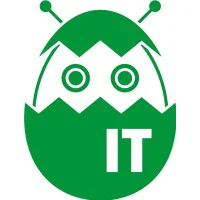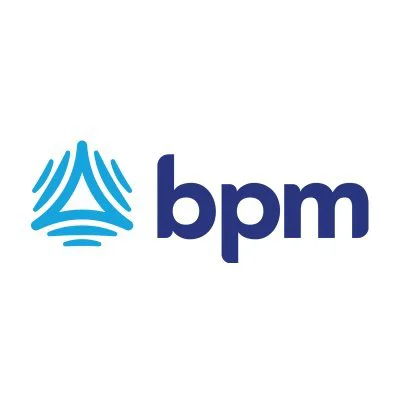Learning Design and Delivery Lead

StackAdapt
📍Remote - Canada
Please let StackAdapt know you found this job on JobsCollider. Thanks! 🙏
Summary
Join StackAdapt's Learning and Development team as a Program Lead and enhance our People & Culture mission. You will be instrumental in shaping the technical learning journey for our employees, ensuring they have the knowledge and skills to excel. Leverage your expertise in instructional design, content development, and program management to create and deliver world-class learning solutions. Work directly with the Director of Talent Development to build learning experiences that drive engagement, performance, and equity. The ideal candidate is innovative, experimental, and believes in continuous improvement. StackAdapt is a Remote First company, open to candidates located anywhere in Canada.
Requirements
- Experience in Human Resources, RnD Learning, Instructional Design, or related fields
- Proven experience in Learning & Development, with a significant focus on designing and developing technical learning content
- Proven ability to translate complex technical information into accessible and engaging learning experiences for diverse audiences
- Exceptional facilitation skills and ability to manage the emotional culture of large groups by creating psychological safety
- Current knowledge of effective learning and development methodologies
- Experience with Learning Management Systems (LMS) administration and reporting
- Proficiency in using authoring tools (Articulate 360/Rise), video editing software (Descript) and other multimedia development tools
- Strong understanding of adult learning principles and learning technologies
- Excellent project management, organizational, communication and interpersonal skills
- Ability to collaborate effectively with and influence stakeholders at all levels of the organization
- A proactive and results-oriented mindset with a passion for continuous learning and improvement
Responsibilities
- Core Program Management Skills (with an AI/Technical Learning Lens)
- Strategic Vision & Curriculum Design: Ability to define a clear learning strategy that aligns with organizational goals for technical literacy and AI adoption. This includes understanding the target audience's current skill gaps and designing comprehensive learning pathways
- Stakeholder Management & Communication (Technical Translation): Exceptional ability to communicate complex technical concepts (including AI principles, tools, and applications) clearly and concisely to diverse audiences, from highly technical subject matter experts to non-technical business leaders. This involves translating technical jargon into actionable learning objectives and communicating the value proposition of the training programs
- Project & Program Management Methodologies (Agile/Iterative): Proficiency in managing multiple, concurrent learning content development projects, likely leveraging agile or iterative approaches to respond quickly to evolving technical needs and AI advancements
- Risk Management (AI-Specific): Identifying and mitigating risks associated with AI learning content, such as ensuring accuracy, addressing potential biases in AI examples, and staying abreast of rapidly changing AI technologies
- Measurement & Evaluation (Learning ROI): Ability to define meaningful metrics for learning program success, track progress, measure the impact of upskilling on technical literacy and AI adoption, and demonstrate return on investment (ROI). This could involve skill assessments, productivity gains, or successful AI project implementations
- Vendor and Resource Management: Experience in evaluating, selecting, and managing external vendors or internal resources for content creation, learning platforms, and AI tools
- II. Technical Literacy & AI Content Expertise
- Understanding of Technical Literacy Fundamentals: A solid grasp of core technical concepts relevant to the organization's domain, including but not limited to
- Data Literacy: Understanding data sourcing, quality, bias, data analysis, and how data fuels AI
- Software Development Lifecycle: Understanding how technical solutions are developed and deployed
- DevOps Concepts: Understanding of how products are built, deployed, and maintained efficiently. Grasp of continuous integration/continuous delivery pipelines, automated testing, infrastructure as code, and the cultural shift towards collaboration between development and operations
- Agile/Scrum/Kanban: Deep familiarity with agile principles and popular methodologies. This includes understanding concepts like sprints, backlogs, user stories, daily stand-ups, retrospectives, and how these facilitate iterative product development
- AI Acumen (Foundational & Applied)
- Generative AI Principles & Applications: Familiarity with how generative AI works, its capabilities, limitations, and ethical considerations
- AI Tooling & Platforms: Awareness of popular AI/ML platforms, libraries and specific AI tools relevant to the organization's needs
- Prompt Engineering: Understanding how to effectively interact with and elicit desired outputs from AI models
- Learning Technology & Instructional Design
- Learning Management Systems (LMS) Proficiency: Experience with LMS platforms for content delivery, tracking, and reporting
- Instructional Design Principles: Knowledge of adult learning theories, instructional design models (e.g. Articulate 360/Rise), and best practices for creating engaging and effective technical learning content
- Content Creation Tools: Familiarity with tools for creating various learning formats (e.g., e-learning modules, videos, interactive simulations, documentation)
- III. Delivery & Soft Skills
- Continuous Learning & Adaptability: Given the rapid pace of change in technology and AI, the ability to continuously learn, unlearn, and adapt to new concepts, tools, and methodologies is paramount
- Critical Thinking & Problem Solving: Analyzing complex technical challenges and designing learning solutions that address root causes and foster practical skill development
- Influence Without Authority: Ability to guide and motivate subject matter experts, instructors, and learners without direct reporting lines
- Curiosity & Innovation: A genuine interest in emerging technologies and a drive to find innovative ways to leverage AI for learning and upskilling
- Ethical Mindset: A strong understanding of ethical considerations in AI and the ability to integrate responsible AI practices into learning content
- Facilitation: Demonstrated experience planning, guiding and delivering learning development programming to motivate learners, encourage engagement and discussion and provide actionable outcomes
Benefits
Remote work, flexible hours
Share this job:
Disclaimer: Please check that the job is real before you apply. Applying might take you to another website that we don't own. Please be aware that any actions taken during the application process are solely your responsibility, and we bear no responsibility for any outcomes.
Similar Remote Jobs
💰$99k-$124k
📍Canada
💰$110k-$180k
📍Worldwide
📍South Africa
📍Worldwide

💰$40k-$70k
📍India
📍Worldwide
📍Turkey
💰$150k-$187k
📍United States







